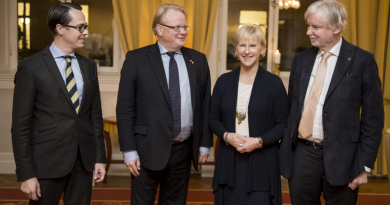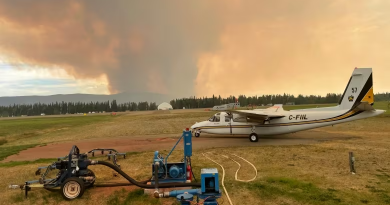Climate compromise needed: Swedish official

The Bonn Climate change conference ends on Friday and time is running out to achieve a compromise ahead of the global climate meeting in Paris in December.
Since the failure to reach a climate agreement in Copenhagen in 2009, the need to stop greenhouse gas emissions has become more evident. Sweden’s chief negotiator at the conference in Bonn, Switzerland, is Anna Lindstedt. She says if you are going to succeed in Paris, you can’t save all the difficult questions until the last day.
“And that means that you have to find compromises now,” she says.
Need for monitoring system
The Swedish government wants an agreement that is global, fair and legally binding. It needs to keep the global warming as far below two degrees as possible and it should also include a monitoring system, that makes sure the countries live up to their commitments, says Annika Lindstedt.
“It is important for us that we build a strong agreement, that includes everyone so it is truly global, to give us a real chance of becoming a world that emits much less greenhouse gases. In order to reach that we need strong systems to monitor and follow up,” she says.
Replacing Kyoto
The Paris agreement is supposed to replace the Kyoto protocol, so far the only climate agreement where countries have promised to lower their greenhouse gas emissions. But that agreement only applies to a limited number of industrial nations and a small part of the emissions, whereas the Paris agreement is supposed to be signed by all nations.
Ahead of the meeting in Paris, all member states have been asked to state what they are willing to do within the new climate agreement. But things are moving slowly and many nations still haven’t done so.
Sending a signal
The EU member states have agreed to lower their greenhouse gas emissions by 40 percent in 2030 compared to the amount that was emitted in 1990. How much each EU nation will be allowed to emit will be decided after the summit.
Sweden’s negotiator Anna Lindstedt believes that there will be a global legally binding agreement in Paris. But, as it needs to last many years, there are more details that needs to be decided before it is supposed to start applying in 2020. One important role of a Paris Agreement is therefor also to send a signal about the road ahead.
“You should see this agreement as part of something bigger. It won’t save the world in itself, but all the changes that comes with it may do,” says Anna Lindstedt.
Related stories from around the North:
Asia: Asia ahead on preparing for polar climate change, says U.S. Arctic rep, Eye on the Arctic
Finland: Climate change brings new insect arrivals to Finland, Yle News
Sweden: Climate change could threaten Sweden’s shrimp, Radio Sweden
United States: Obama urges action on climate change, Alaska Dispatch News



